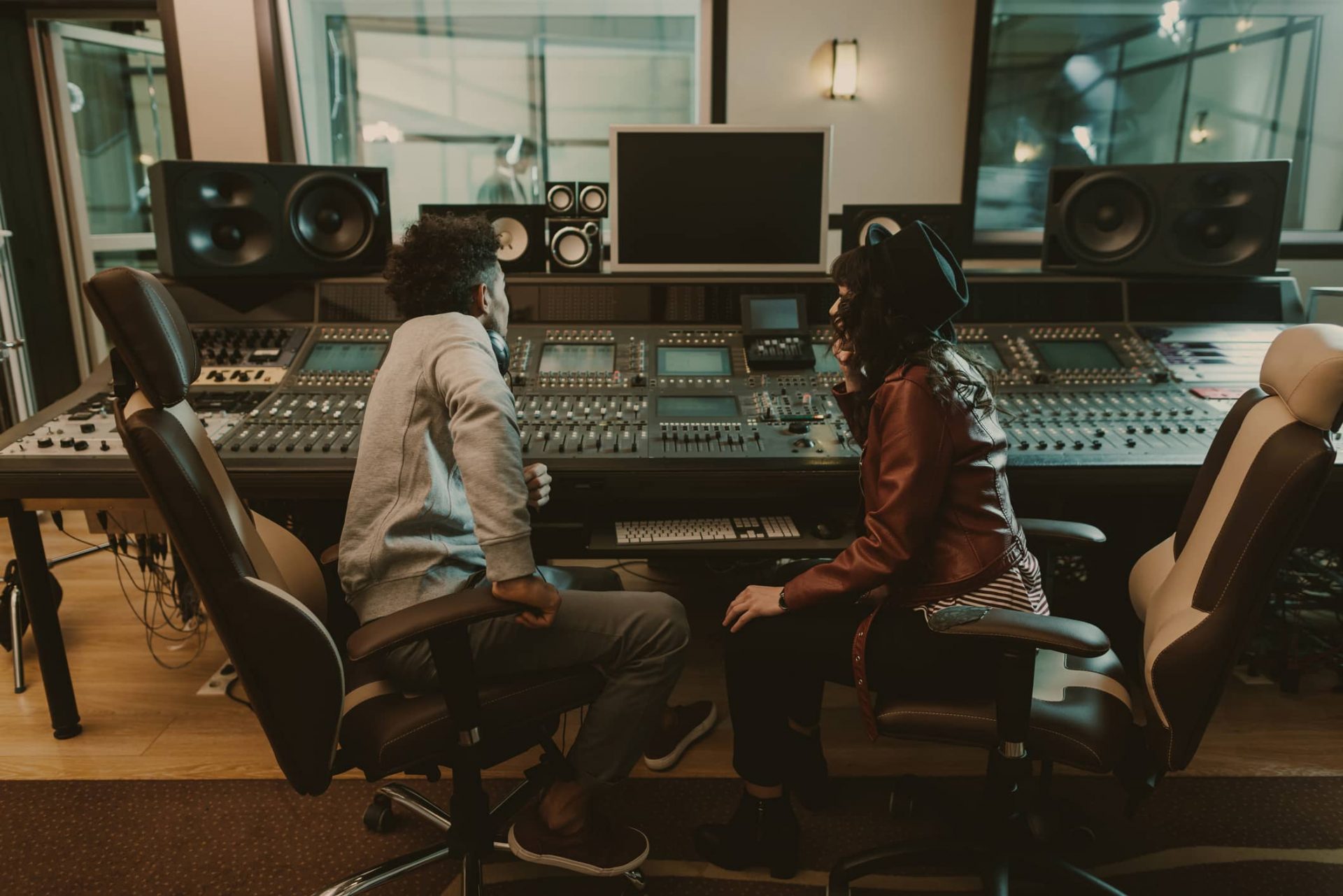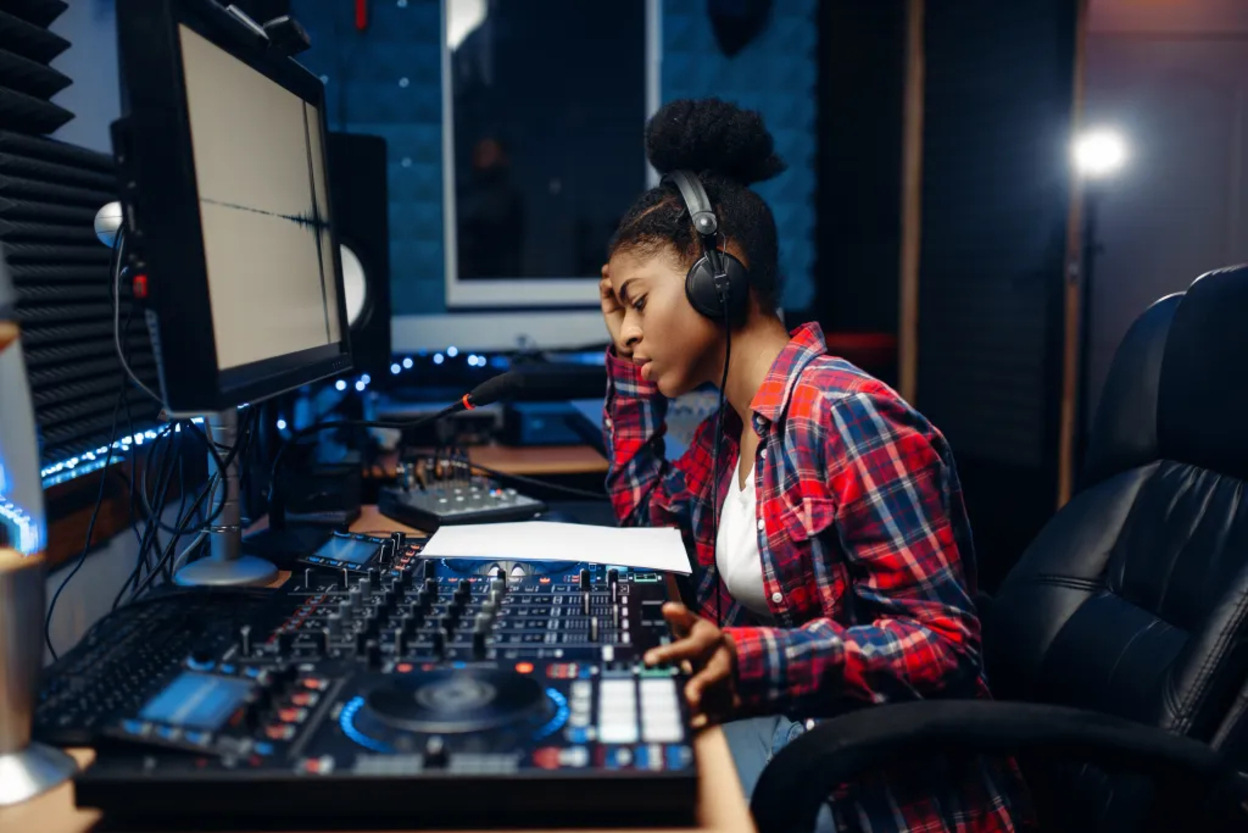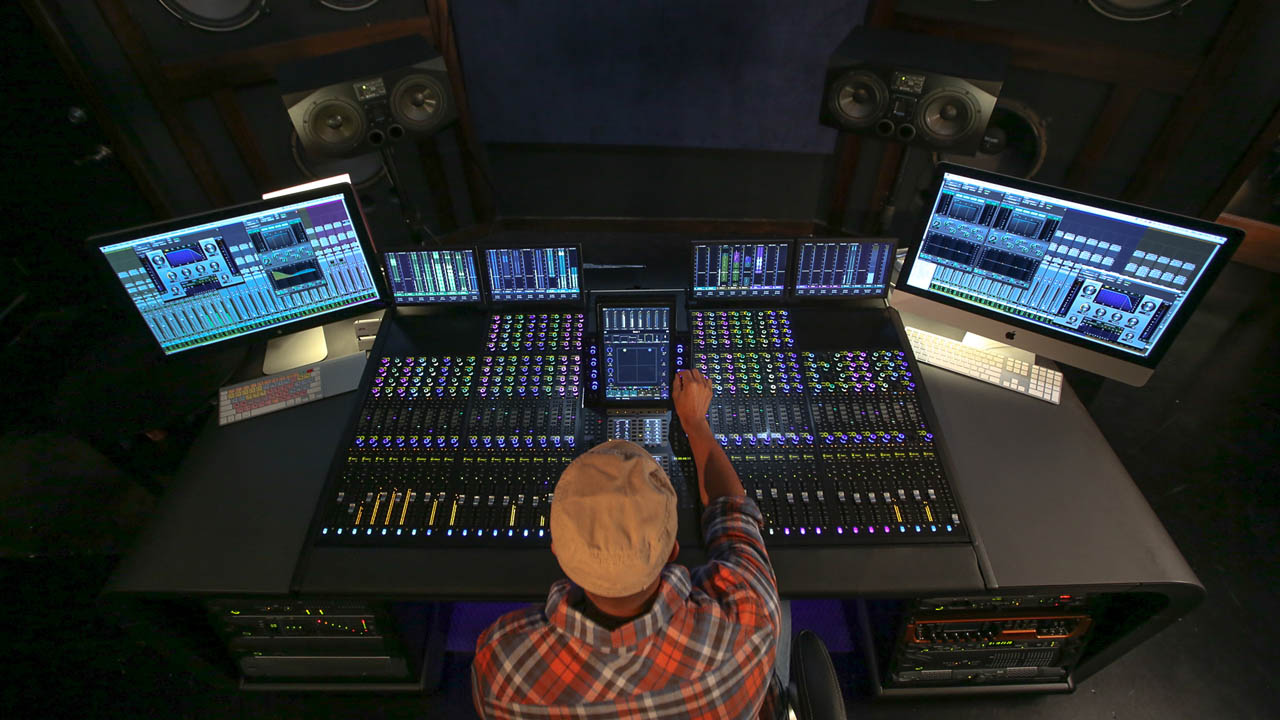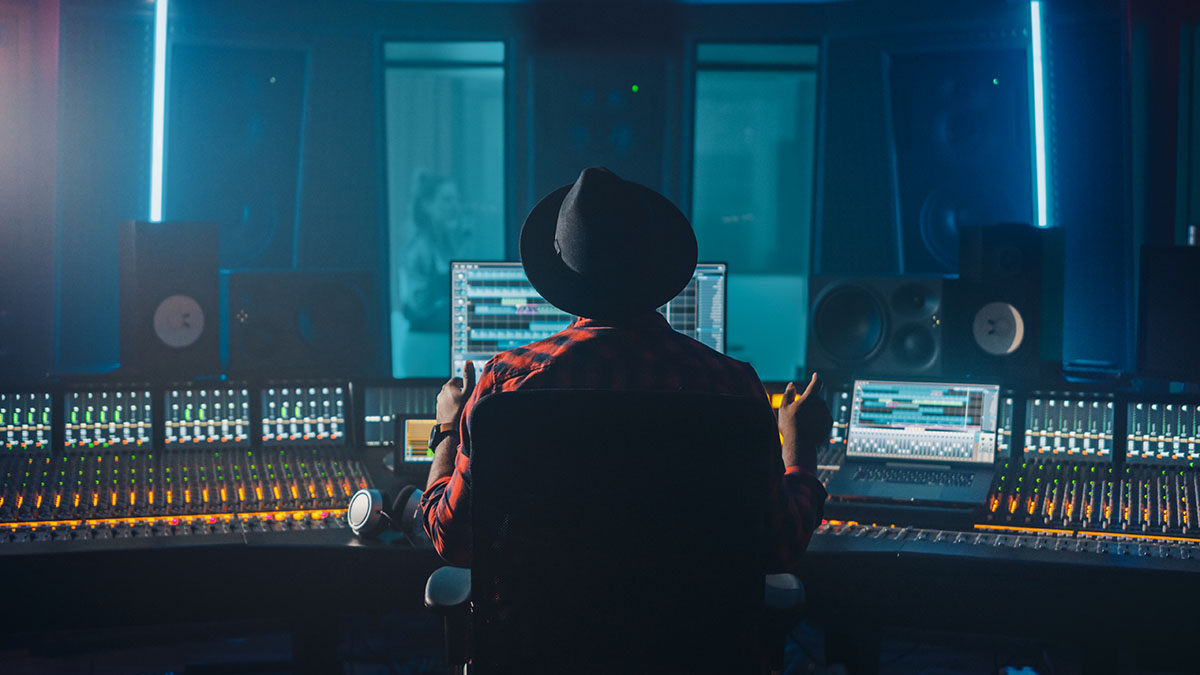Home>Production & Technology>Producer>How To Become A Music Producer
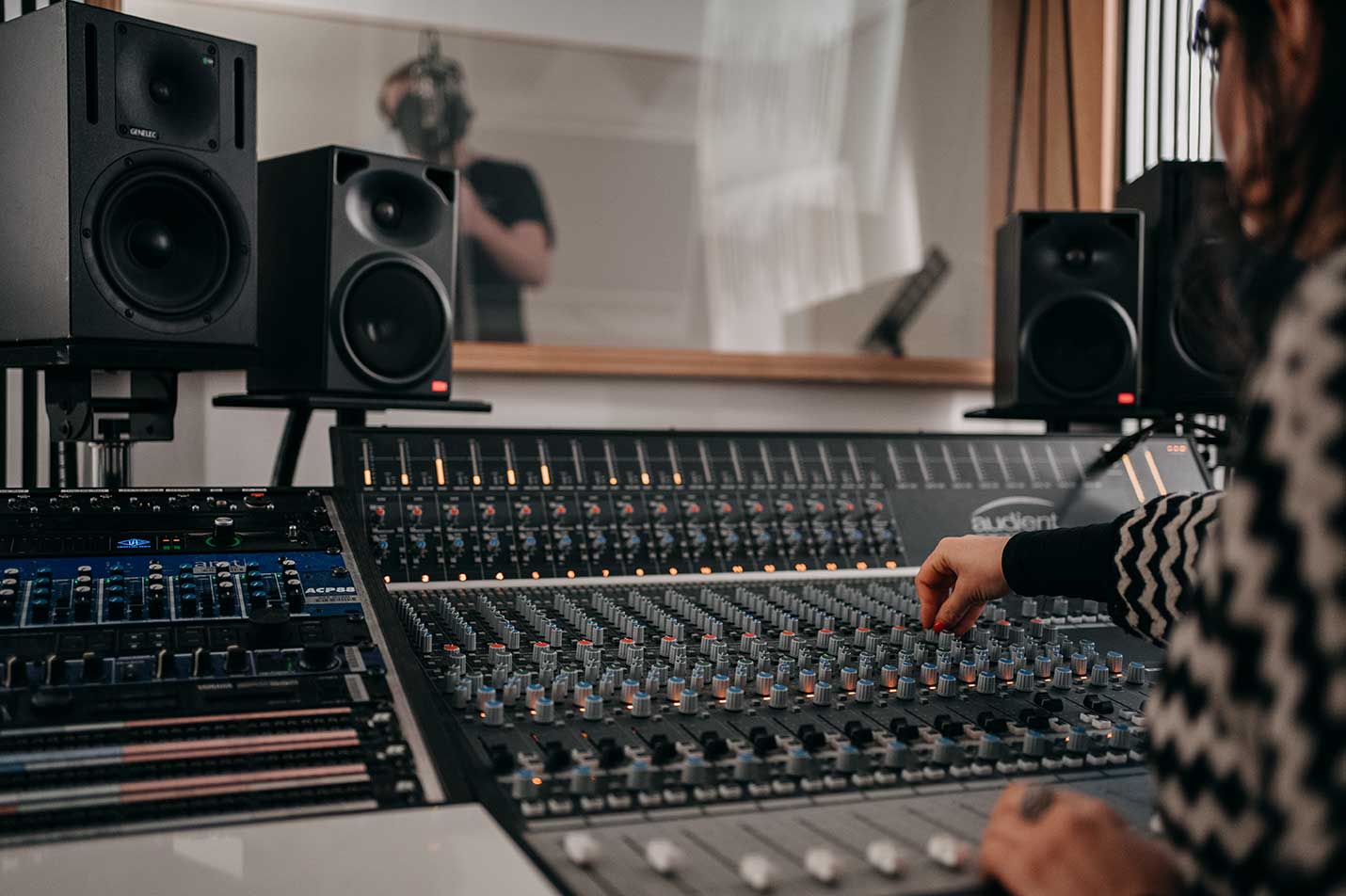

Producer
How To Become A Music Producer
Published: March 5, 2024
Learn how to become a music producer and start creating your own tracks. Discover the essential skills and tools needed to succeed in the music production industry.
(Many of the links in this article redirect to a specific reviewed product. Your purchase of these products through affiliate links helps to generate commission for AudioLover.com, at no extra cost. Learn more)
Table of Contents
Introduction
Becoming a music producer is a dream shared by many music enthusiasts who are passionate about shaping and creating sounds that resonate with audiences. It's a role that combines technical expertise, artistic vision, and a deep understanding of the music industry. As a music producer, you have the unique opportunity to work closely with artists, shaping their musical creations and bringing their visions to life.
The journey to becoming a music producer is both challenging and rewarding. It requires a blend of creativity, technical skills, and a keen understanding of the ever-evolving music landscape. Whether you aspire to produce chart-topping hits, experimental indie tracks, or film scores, the role of a music producer is diverse and multifaceted.
In this comprehensive guide, we will delve into the intricate world of music production, exploring the skills, knowledge, and experiences necessary to thrive in this dynamic industry. From honing your technical abilities to navigating the complexities of networking and finding opportunities, this guide will equip you with the essential insights to embark on a fulfilling career as a music producer.
So, if you're ready to embark on a journey that combines your passion for music with the thrill of creativity and innovation, join us as we uncover the path to becoming a successful music producer. Throughout this guide, you'll gain valuable insights and practical tips to help you navigate the exciting and ever-evolving world of music production. Let's dive in and explore the multifaceted realm of music production, where creativity knows no bounds and the possibilities are endless.
Understanding the Role of a Music Producer
At the heart of the music production process lies the pivotal role of a music producer. A music producer is not merely a technician operating recording equipment; rather, they are the creative force that shapes and molds the sonic landscape of a musical piece. From guiding the artistic direction to overseeing the technical aspects of a recording, a music producer wears multiple hats, serving as a visionary, collaborator, and problem solver.
One of the primary responsibilities of a music producer is to work closely with artists to actualize their musical vision. This involves understanding the nuances of an artist's style, genre, and aspirations, and translating these elements into a cohesive and compelling musical production. Whether it's providing guidance on arrangement, instrumentation, or vocal delivery, a music producer acts as a trusted partner, offering invaluable insights and expertise to enhance the quality and impact of a musical piece.
Furthermore, a music producer is deeply involved in the technical aspects of the recording process. This includes selecting and setting up recording equipment, capturing and manipulating sound, and ensuring the overall sonic integrity of a recording. With a keen ear for detail and a solid understanding of audio engineering principles, a music producer plays a critical role in achieving the desired sonic aesthetic, whether it's a pristine, polished pop track or a raw, gritty rock anthem.
Beyond the recording studio, a music producer also takes on the role of a project manager, overseeing timelines, budgets, and the overall production workflow. This requires strong organizational skills, effective communication, and the ability to collaborate with a diverse range of professionals, including musicians, engineers, and industry executives. By navigating the complexities of project management, a music producer ensures that the creative vision is realized within the parameters of practicality and feasibility.
In essence, the role of a music producer is multifaceted, requiring a delicate balance of artistic sensibility, technical prowess, and managerial acumen. It's a role that demands adaptability, creativity, and a deep passion for music. Aspiring music producers must embrace the diverse facets of this role, understanding that it goes beyond the confines of a traditional job description, and encompasses the artistry, craftsmanship, and innovation that define the captivating world of music production.
Acquiring the Necessary Skills and Knowledge
Becoming a proficient music producer requires a diverse skill set and a deep reservoir of knowledge that spans both technical and creative domains. To embark on this journey, aspiring music producers must cultivate a solid foundation in music theory, composition, and audio engineering. These fundamental pillars form the bedrock upon which a successful career in music production is built.
1. Musical Proficiency
A thorough understanding of music theory is essential for music producers. This includes knowledge of scales, chords, harmony, and rhythm, enabling producers to communicate effectively with musicians, arrange compositions, and make informed creative decisions. Additionally, proficiency in an instrument, such as piano or guitar, provides invaluable insight into musical structure and facilitates the composition process.
2. Technical Skills
Proficiency in digital audio workstations (DAWs) is paramount for music producers. Familiarity with industry-standard software, such as Pro Tools, Logic Pro, or Ableton Live, empowers producers to manipulate, edit, and mix audio with precision. Moreover, a strong grasp of audio engineering principles, including sound recording, signal processing, and mixing techniques, is indispensable for crafting high-quality, professional-grade productions.
3. Creative Vision
A keen ear for musical detail and a discerning artistic sensibility are hallmarks of a successful music producer. Cultivating a diverse musical palette, staying abreast of current trends, and exploring unconventional sonic landscapes contribute to the development of a unique creative identity. This visionary approach allows producers to infuse their productions with innovation and originality, setting them apart in a competitive industry.
4. Industry Knowledge
Staying informed about the ever-evolving music industry landscape is crucial. Understanding market trends, distribution platforms, and the business side of music production empowers producers to navigate the industry with insight and adaptability. Additionally, cultivating an awareness of different musical genres, historical trends, and cultural influences enriches the creative process and broadens artistic horizons.
5. Continuous Learning
The pursuit of excellence in music production is an ongoing journey. Embracing a mindset of continuous learning, whether through formal education, online courses, or hands-on experience, is vital for honing skills and staying relevant in a dynamic industry. Engaging with industry professionals, attending workshops, and seeking mentorship opportunities can provide invaluable guidance and foster professional growth.
By acquiring a comprehensive set of skills and knowledge encompassing music theory, technical proficiency, creative vision, industry insights, and a commitment to continuous learning, aspiring music producers lay a robust foundation for a fulfilling and enduring career in music production. This multifaceted expertise equips them to navigate the complexities of the production process, collaborate effectively with artists, and contribute to the vibrant tapestry of the music industry.
Building a Portfolio and Gaining Experience
Building a formidable portfolio and gaining hands-on experience are pivotal steps in the journey of becoming a proficient music producer. Aspiring producers must proactively seek opportunities to apply their skills, collaborate with artists, and immerse themselves in the intricacies of music production. This proactive approach not only hones their craft but also showcases their capabilities to potential collaborators and industry professionals.
One of the most effective ways to build a portfolio is to engage in a diverse range of projects, spanning different musical genres and artistic styles. This may involve collaborating with emerging artists, producing demo recordings, or contributing to independent music projects. By diversifying their portfolio, aspiring producers demonstrate their versatility and adaptability, showcasing their ability to navigate various musical landscapes and capture distinct sonic identities.
In addition to diversifying their portfolio, gaining practical experience in a professional studio environment is invaluable. Interning or assisting at recording studios provides firsthand exposure to the nuances of music production, offering insights into studio operations, equipment utilization, and workflow dynamics. This immersive experience not only enhances technical proficiency but also fosters an understanding of the collaborative dynamics between producers, engineers, and artists.
Furthermore, seeking mentorship opportunities with established music producers can provide invaluable guidance and mentorship. Learning from seasoned professionals offers a wealth of practical knowledge, industry insights, and artistic perspectives that enrich the learning journey. By apprenticing under experienced producers, aspiring music producers gain access to real-world scenarios, industry connections, and invaluable mentorship that accelerates their growth and development.
Engaging in music competitions, industry showcases, and collaborative projects with fellow musicians and producers also presents opportunities to showcase skills, receive constructive feedback, and expand professional networks. These platforms offer exposure to industry professionals, potential collaborators, and industry trends, fostering invaluable connections and opening doors to future opportunities.
Ultimately, the process of building a portfolio and gaining experience is a dynamic and iterative journey. It requires persistence, adaptability, and a proactive mindset. By actively seeking diverse projects, immersing in professional studio environments, seeking mentorship, and leveraging industry platforms, aspiring music producers can cultivate a robust portfolio and gain invaluable experience that propels them towards a successful and fulfilling career in music production.
Networking and Building Relationships in the Industry
Networking and relationship-building are integral components of establishing a successful career as a music producer. In an industry driven by collaboration and connections, the ability to forge meaningful relationships with artists, industry professionals, and fellow producers can significantly impact one's trajectory in the music production landscape.
A pivotal aspect of networking in the music industry involves actively engaging with artists and musicians. Attending live music events, showcases, and open mic nights provides opportunities to connect with emerging talent, understand their artistic visions, and explore potential collaborative projects. By fostering genuine connections with artists, music producers can cultivate a network of creative collaborators, laying the groundwork for mutually beneficial partnerships and artistic synergies.
Furthermore, building relationships with industry professionals, such as record label executives, A&R representatives, and music supervisors, is essential for navigating the business side of music production. Industry conferences, workshops, and networking events offer platforms to interact with key decision-makers, gain insights into industry trends, and showcase one's production prowess. Establishing a strong industry network can open doors to potential projects, licensing opportunities, and industry visibility, amplifying one's presence in the competitive music landscape.
In addition to artist and industry connections, fostering relationships with fellow music producers is equally valuable. Collaboration within the producer community not only fosters a spirit of camaraderie but also presents opportunities for knowledge exchange, skill enhancement, and potential co-production ventures. Engaging in producer meetups, online forums, and collaborative projects cultivates a supportive ecosystem where producers can share insights, provide feedback, and collectively elevate the standard of music production.
Social media platforms and online communities serve as powerful tools for expanding one's professional network. Maintaining an active and engaging presence on platforms such as SoundCloud, LinkedIn, and music production forums facilitates connections with a global audience of artists, producers, and industry professionals. By leveraging the reach of digital platforms, music producers can amplify their visibility, showcase their portfolio, and engage in meaningful conversations that foster valuable connections.
Ultimately, the art of networking and relationship-building in the music industry revolves around authenticity, reciprocity, and a genuine passion for collaboration. By nurturing a diverse network of connections, music producers can position themselves for a dynamic and fulfilling career, where creative opportunities abound, and artistic visions are realized through the power of meaningful relationships.
Finding Opportunities and Breaking into the Music Production Scene
Embarking on a career in music production is a journey marked by the pursuit of opportunities and the relentless pursuit of visibility in a competitive industry. Breaking into the music production scene requires a strategic approach, a proactive mindset, and a deep understanding of the dynamics that govern the industry landscape.
One of the most effective avenues for finding opportunities in music production is to actively seek out internships, assistant roles, or entry-level positions at recording studios, production houses, or music companies. These opportunities provide invaluable hands-on experience, exposure to industry professionals, and a platform to showcase one's skills and dedication. By immersing in a professional environment, aspiring music producers gain practical insights, build industry connections, and position themselves for future opportunities.
Moreover, leveraging digital platforms and online communities is crucial for expanding visibility and accessing a global network of collaborators. Establishing a compelling online presence through platforms such as SoundCloud, YouTube, and social media channels allows music producers to showcase their portfolio, engage with a diverse audience, and attract potential collaborators and clients. Engaging in online collaborations, participating in remix contests, and sharing original productions can amplify one's visibility and create opportunities for industry recognition.
Attending industry events, music conferences, and workshops presents avenues for networking, learning, and gaining exposure to industry trends. These platforms offer opportunities to connect with established professionals, gain insights into industry best practices, and showcase one's passion and talent. Building a presence at industry events not only fosters valuable connections but also positions music producers as active participants in the industry's evolving landscape.
Collaborating with emerging artists, bands, and independent musicians is another avenue for finding opportunities and establishing a presence in the music production scene. By offering production services, contributing to creative projects, and nurturing collaborative relationships, music producers can build a diverse portfolio, gain industry referrals, and expand their network within the music community.
In the dynamic and ever-evolving music production scene, persistence, adaptability, and a proactive approach are essential for breaking into the industry. By actively seeking diverse opportunities, leveraging digital platforms, engaging in industry events, and fostering collaborative relationships, aspiring music producers can carve a path towards a thriving career in music production, where creative opportunities abound, and artistic visions are realized through the power of meaningful connections.
Conclusion
In conclusion, the journey to becoming a successful music producer is a dynamic and multifaceted endeavor that demands a blend of creativity, technical expertise, and a proactive approach to networking and industry engagement. Aspiring music producers must cultivate a diverse skill set encompassing musical proficiency, technical acumen, creative vision, and industry insights. By honing these foundational skills and continuously expanding their knowledge, they lay a robust foundation for a fulfilling career in music production.
Building a formidable portfolio and gaining hands-on experience are pivotal steps in the journey of becoming a proficient music producer. Diversifying one's portfolio, seeking mentorship opportunities, and actively engaging in collaborative projects provide invaluable exposure and practical insights that shape the trajectory of a music production career. Furthermore, networking and relationship-building play a crucial role in establishing a presence in the music industry, offering avenues for collaboration, mentorship, and industry visibility.
Breaking into the music production scene requires a strategic and proactive approach, leveraging opportunities such as internships, digital platforms, industry events, and collaborative projects. By actively seeking diverse opportunities, aspiring music producers can position themselves for industry recognition, collaborative ventures, and professional growth.
Ultimately, the path to becoming a successful music producer is marked by a commitment to continuous learning, a proactive engagement with industry dynamics, and a genuine passion for the art of music production. Embracing the diverse facets of the role, fostering meaningful connections, and staying attuned to industry trends are essential elements that pave the way for a dynamic and fulfilling career in music production. As the music production landscape continues to evolve, aspiring producers are poised to embark on a journey where creativity knows no bounds, and the power of music transcends conventional boundaries.
In this vibrant and ever-evolving realm, aspiring music producers have the opportunity to shape the sonic landscapes of tomorrow, collaborate with diverse talents, and contribute to the rich tapestry of the music industry. By embracing the insights and practical tips shared in this guide, aspiring music producers are well-equipped to embark on a journey that combines their passion for music with the thrill of creativity and innovation, where the possibilities are endless, and the potential for artistic impact knows no bounds.

